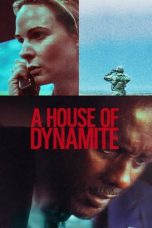Cross of Iron (1977) Movie Review – A Gritty War Epic from Sam Peckinpah
Cross of Iron (1977) is a harrowing and visceral war film directed by Sam Peckinpah, known for his signature style of raw, unflinching violence and complex character studies. Set during World War II on the Eastern Front, the film is a departure from typical war movies, focusing on the German soldiers rather than the Allies. This unconventional perspective offers a gritty and sobering look at the brutality and futility of war. Starring James Coburn, Maximilian Schell, and James Mason, Cross of Iron remains a powerful and haunting examination of the human condition under the most extreme circumstances. This review will delve into the film’s plot, themes, direction, performances, and where to watch it online, particularly in the United States.
Plot Overview
Set in 1943, Cross of Iron follows the story of Steiner (James Coburn), a battle-hardened and disillusioned German sergeant leading a squad on the Eastern Front during the Wehrmacht’s retreat from the Soviet Union. The film begins with Steiner and his men engaging in brutal combat against the advancing Soviet forces. Despite their efforts, they are hopelessly outnumbered and outgunned, underscoring the futility of their mission.
Steiner’s superior, Captain Stransky (Maximilian Schell), is a Prussian aristocrat and career officer newly assigned to the front. Stransky is obsessed with earning the Iron Cross, a prestigious military honor, to bolster his reputation, regardless of the cost to his men. This ambition puts him at odds with Steiner, who despises Stransky’s disregard for the lives of the soldiers under his command.
As the Soviet forces close in, tensions between Steiner and Stransky escalate. The film builds to a climax as Steiner’s men are caught in a desperate battle to survive, while Stransky’s betrayal becomes apparent. The story ultimately reveals the dehumanizing effects of war, not just on the body, but on the soul.
Themes and Tone
Cross of Iron is steeped in themes that explore the horrors of war, the moral complexities of duty, and the corrupting influence of ambition:
- The Brutality of War: Peckinpah doesn’t romanticize combat. Instead, he presents war as a relentless, chaotic, and dehumanizing force. The film’s combat scenes are intense and graphic, depicting the savage reality faced by soldiers on the front lines. This portrayal strips away any sense of glory, leaving only the raw struggle for survival.
- Moral Ambiguity: The characters in Cross of Iron operate in a morally gray area. Steiner, despite his cynicism, still shows moments of compassion, while Stransky’s cowardice and ambition highlight the hypocrisy often found in military hierarchies. The film questions the very nature of honor and what it means to be a hero in a war where victory is as hollow as defeat.
- Class and Command: The tension between Steiner, a man of the people, and Stransky, an aristocrat, underscores the class divide within the German military. Steiner’s disdain for Stransky’s ambition and lack of concern for the men reflects a broader critique of the ruling classes’ detachment from the realities of war.
- Futility and Desperation: The constant retreat of Steiner’s unit against the overwhelming Soviet forces symbolizes the futility of the war effort. The soldiers’ efforts seem meaningless in the face of inevitable defeat, highlighting the senselessness of the conflict and the despair that accompanies it.
Direction and Cinematic Style
Sam Peckinpah’s direction in Cross of Iron is marked by his usual blend of intense action and deep character exploration. The film’s pacing is deliberate, allowing moments of quiet tension to build before erupting into violent conflict. Peckinpah uses slow motion and quick cuts to emphasize the chaos and brutality of battle, a technique that he popularized in earlier films like The Wild Bunch.
The cinematography by John Coquillon captures the bleakness of the war-torn landscape, with muddy trenches, shattered forests, and endless fields of death serving as the backdrop for the soldiers’ struggles. The visual style is gritty and realistic, immersing the audience in the grim reality of the Eastern Front.
Peckinpah also pays close attention to the psychological effects of war on his characters. The film is as much about the internal battles fought by Steiner and his men as it is about the external conflict. This focus on character development amidst the horrors of war gives the film an emotional depth that sets it apart from more conventional war movies.
Performances
The cast of Cross of Iron delivers powerful performances that bring depth and nuance to their characters:
- James Coburn: As Steiner, Coburn gives one of the best performances of his career. He portrays Steiner as a man who is both physically and mentally scarred by the war, yet remains a natural leader who cares deeply for his men. Coburn’s rugged demeanor and intense screen presence anchor the film, making Steiner a compelling and sympathetic character.
- Maximilian Schell: Schell’s portrayal of Captain Stransky is equally memorable. He plays Stransky as a man driven by cowardice and ambition, willing to sacrifice anything and anyone to achieve his goals. Schell’s performance captures the arrogance and desperation of a man out of his depth, adding a layer of tragedy to his character’s downfall.
- James Mason: Mason’s role as Colonel Brandt, Steiner’s superior, provides a voice of reason and a sense of weary resignation. Mason’s understated performance adds a somber tone to the film, as Brandt is fully aware of the hopelessness of their situation, yet remains committed to his duty.
- David Warner: As Captain Kiesel, Warner delivers a strong performance as Brandt’s aide, who shares Steiner’s disillusionment with the war. Warner brings a quiet intensity to the role, providing a counterpoint to the more overtly ambitious Stransky.
Critical Reception and Legacy
Cross of Iron was met with mixed reviews upon its release but has since been re-evaluated as a significant work in Peckinpah’s filmography. The film’s unflinching depiction of war, combined with its complex characters and moral ambiguity, has earned it a place among the most respected war films of its era. It stands as a powerful anti-war statement, challenging the glorification of conflict and exposing the harsh realities faced by those who fight.
The film’s influence can be seen in later war movies that similarly explore the psychological toll of combat and the futility of war. Despite being less commercially successful than some of Peckinpah’s other works, Cross of Iron remains a haunting and unforgettable depiction of World War II, with a legacy that continues to resonate with audiences and filmmakers alike.
Where to Watch Cross of Iron (1977) Online
For viewers interested in experiencing Cross of Iron, the film is available on several streaming and rental platforms in the United States:
- Amazon Prime Video: Cross of Iron is available for rental or purchase on Amazon Prime Video, with prices typically starting at $3.99 for rental and $9.99 for purchase.
- Apple TV: The film can also be rented or purchased on Apple TV, making it accessible for a wide range of viewers.
- Google Play Movies & TV: Google Play offers the film for digital rental or purchase, allowing viewers to watch it on various devices.
- YouTube Movies: Cross of Iron is available for streaming on YouTube Movies, providing another convenient option for rental or purchase.
- Vudu: Vudu also offers the film for rental or purchase, catering to those who prefer this platform.
Final Verdict
Cross of Iron (1977) is a stark, unflinching look at the horrors of war, brought to life by Sam Peckinpah’s masterful direction and a stellar cast led by James Coburn. The film’s exploration of the moral complexities and psychological toll of combat sets it apart from more conventional war movies, making it a deeply affecting and thought-provoking experience.
Available on multiple streaming platforms, Cross of Iron is a must-watch for fans of war films and those interested in the darker, more introspective side of Sam Peckinpah’s work. Whether you’re a student of history, a cinema enthusiast, or simply looking for a powerful film, Cross of Iron offers a gripping and unforgettable journey into the heart of war.
















